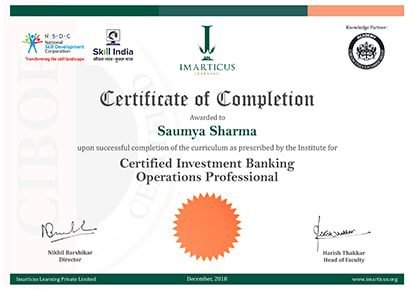The global investment banking industry is experiencing a boom, which means that the demand for skilled professionals has never been higher. Investment banking is a fast-paced, demanding job where you’ll be working with highly knowledgeable individuals. You will need to have the right skills and knowledge of the industry to succeed in this field, making it an excellent career choice for anyone who wants to work in finance.
With so many new opportunities opening up every year, now is the perfect time to start building your professional network and getting ahead on your plans for a successful career.
This blog post will provide you with insights into gaining expert knowledge to land your dream job as an investment banker!
Why Should Investment Banking be your Career Choice?
The investment banking industry has seen a boom in the last decade. The world is moving towards digitization, and so are all industries along with it. Investment banks deal in stocks, bonds on both the macroeconomic level of the country and the microeconomic level of a company. All transactions between two companies or even countries need an intermediary to ensure a smooth process that ensures better growth for the economy and trade relations between countries/companies etc.
This role can be fulfilled by only an investment bank with proper research resources for analysis at its disposal. They use these insights to advise clients accordingly, ensuring the best decisions leading to maximum returns from the said transaction(s). This ever-growing demand for executives within this field has led many professionals across various sectors to change careers and join investment banks.
This is the perfect time for you to grab this opportunity as an Investment Banker, especially with so many openings in various fields like equity research analyst, corporate finance associate, or mergers & acquisitions banker, etc. While working your way up through each hierarchy of different job profiles, there is no dearth of opportunities waiting for you.
Key Skills required for Investment Banking Job
Analytical skills: A banking job requires a lot of number crunching. You need to make sense out of volumes and tonnes of data, analyze it within no time, sift through important information and facts from the irrelevant ones ensuring that you provide actionable insights.
Communication skills: Investment banking professionals are required to write reports for their clients in order to provide them with valuable insights and help them in decision-making.
Attention to details: Investment banking requires a lot of focus on minute and important tasks because the smallest error can lead to millions of dollars in losses for your company.
Networking: Investment banking is all about building relationships, you can have the best ideas, but if you don’t know who to sell it to or introduce your client’s needs and services into the system, then no one will ever come across them. It’s all about knowing who to talk to and how.
Problem-solving skills: Investment banking professionals are expected to have good problem-solving skills as they need them regularly to produce accurate reports, analyze data, assess client requirements, etc.
Start a Lucrative Investment Banking with Imarticus Learning
Imarticus Learning Institute offers an investment banking course that imparts knowledge, skills & techniques which are necessary to succeed in today’s competitive financial world. This comprehensive training program is designed by industry experts who have years of experience and exposure in the field.
 If you’re looking forward to jumping start your investment banking careers with exciting job opportunities, then Imarticus Learning’s course is your best place to start!
If you’re looking forward to jumping start your investment banking careers with exciting job opportunities, then Imarticus Learning’s course is your best place to start!
For more insight, connect with us through the Live Chat Support system or visit any of our training centers based in – Chennai, Mumbai, Thane, Pune, Bengaluru, Hyderabad, Delhi, and Gurgaon.











 Massive investment banking firms such as Ernst & Young, Morgan Stanley, Goldman Sachs, and others have dedicated technology divisions, focused only upon investing in technology that will be important in the future or companies that have been estimated to become household names.
Massive investment banking firms such as Ernst & Young, Morgan Stanley, Goldman Sachs, and others have dedicated technology divisions, focused only upon investing in technology that will be important in the future or companies that have been estimated to become household names.


 But automation will not sweepingly eclipse the work of fintech professionals. The expert human overview will be required to assure accuracy for cases of outliers & eliminate self-selection & biases.
But automation will not sweepingly eclipse the work of fintech professionals. The expert human overview will be required to assure accuracy for cases of outliers & eliminate self-selection & biases.